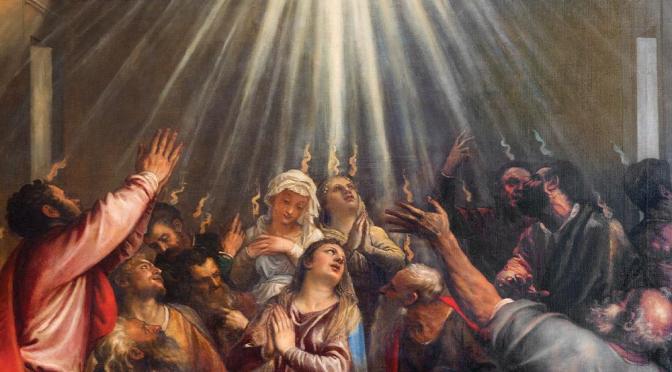As a young boy, I asked my pastor to explain God’s origin and the Trinity. His answer went like this: “God was always around. He became different things when needed: the Creator, then Jesus who left heaven to come to earth, and His Spirit sometimes.” The visual was a fluid God blob. It was a stupid answer, but I didn’t know how to explain it better. Fifty-some-odd years later, I can and want to introduce you to Elohim and their ruler and ours, YHVH (the Hebrew consonants naming the Creator and pronounced Jehovah or Yahweh).
Others existed before this earth’s creation. So, unsurprisingly, they were present at creation (Job 38:7), in Eden (Ezekiel 28:12-19), and in governing all but Israel (Deuteronomy 32:8-9). This group of disembodied spirits is labeled Elohim in ancient Hebrew and identifies angels, Jesus, the Creator, Holy Spirit, and others. Many compose God’s Divine Council. Let’s dig deeper into Elohim YHVH and Elohim as a divine council before finishing with Elohim, the rebels.
Elohim, the Creator & Ruler. God, as we know Him, created everything and has had many labels and roles. But He has only one name: YHVH. He is the God who will be our provider, shepherd, and healer when we are fully devoted to Him. He rules creation, including all Elohim, and seeks willing partners in His dimension and ours despite the risk of rebellion.
Elohim, the Divine Council. Collectively, Elohim has always had a place as a spiritual council headed by YHVH. Our existence began like this: “Then Elohim said, ‘Let Us make man in Our image, according to Our likeness; and let them rule . . .’” (Genesis 1:26). Therefore, we’re meant to be imagers of God—doing and saying here what the Creator and His council do and say in their realm. Jesus reports this like-mindedness (John 5:9 and 14:10). Job mentions this assembly of the ‘sons of God’ (Job 1:6). We see them advising YHVH about Ahab in 1 Kings 22:19-23, and the Psalmist reflects on this holy council in Psalm 89:5-7. Finally, the apostle John sees them in an end-times vision (Revelation 4). However, many have gone rogue (e.g., Psalm 82).
Elohim, the Rebels. Spiritual rebellion happened multiple times during and after Eden. First, Lucifer rebelled and lost his authority. Then, ‘watchers’ appointed to protect humans rebelled and were relegated to the underworld. You can read about this in the books of Enoch and Jasher, both mentioned in our Bible. After Babel, God gave members of His council authority over all nations except Israel (Deuteronomy 32:8-9); they went rogue (e.g., Psalm 82 and Daniel 10:12-13 & 20).
In summary, Elohim represents disembodied spirits. Some are part of a divine council led by YHVH with one mind and mission. Some are rebels. So, we’ll next explore further YHVH’s disinheritance of the nations and Elohim rebellion.
Blessings and peace,
Dr. Ron Braley, MDiv, DMin.

